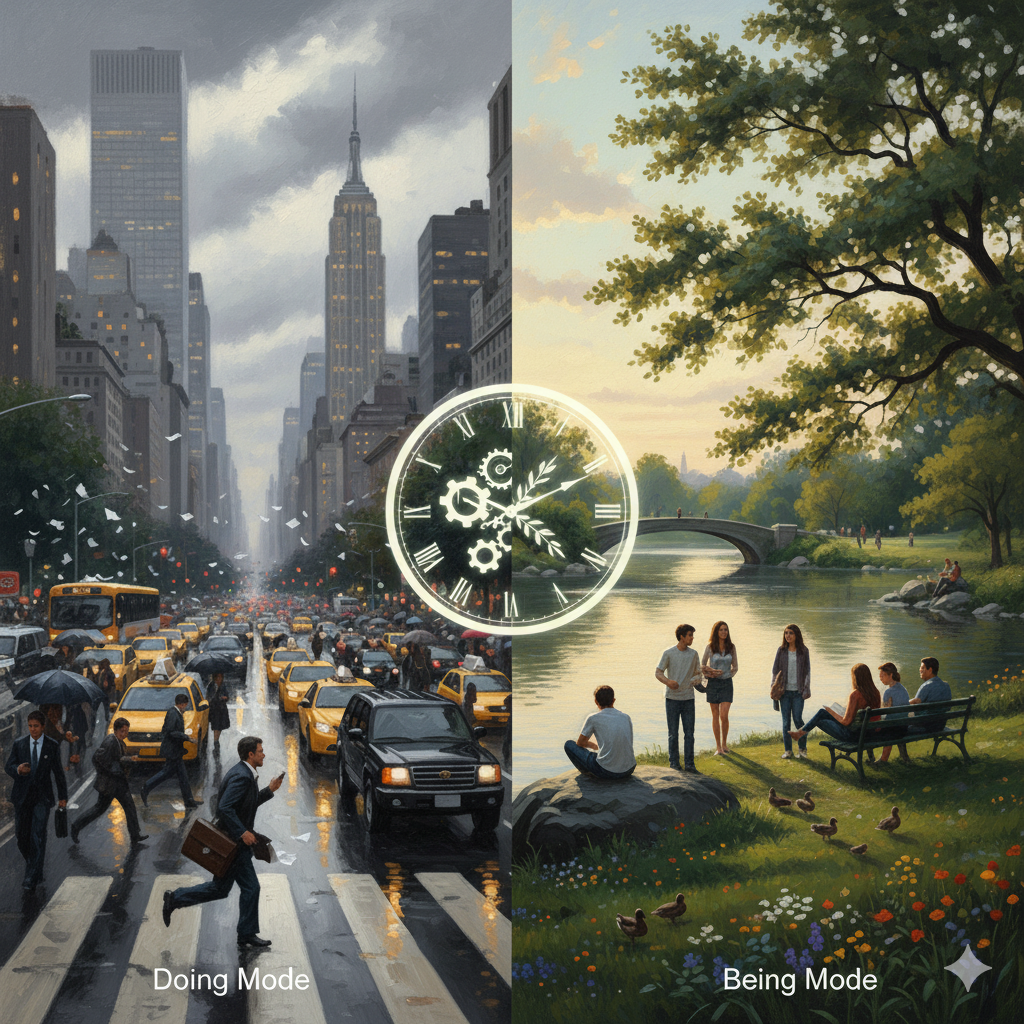Being vs Doing: Escape America’s Productivity Trap

American culture prides itself on being productive. That's why we all love to vacation in places like Italy where we can enjoy la dolce vita (the sweet life) that values a slower pace and enjoyment of the simple pleasures where being is given more importance than doing.
As Americans, we come from generations of pioneers, immigrants and entrepreneurs seeking a better life, yet in more ancient cultures, more importance is placed on “being” rather than “doing;” societies that might not be as productive, but might be more content, more at peace, and more embodied.
Essentially these are two distinct modes human beings operate within: being and doing. In an ideal world, "being" informs doing, and doing informs being on an ideal reflexive loop and in rare cases they can co-exist. As we know, this doesn't always happen. Sometimes doing mode takes over and we turn into rabid, egoic automatons (or something like that).
When we are in an aware, mindful state of being, however, we can act out of that state in a more conscious way. When we are acting from a state of doing, that can loop back to us in negative or positive ways. For instance, if we show ourselves that we can do something, that can positively impact our state of being, creating a calm inner state of confidence at a neurobiological level, as Dr. Caroline Leaf explains to Mel Robbins in this fascinating interview.
On the flip side, if our being is caught up in action, goals, and to-do lists, it narrows it's scope and vision, causing us to become anxious and sometimes unconscious. It's what Gregg Levoy calls a productivity trap, where productivity only begets more productivity and we are thrown off the wheel of being and doing and just stay looped in doing mode.
What we need is a perfect blend that creates a synergistic loop of being vs doing, or as true masters, we can be and do at the same time. But if we ever need a starting point, we must return to being through mindfulness, especially in a society that perpetuates a busy lifestyle. Personally, I have made it a point to change my life in the last year so that I can experience more time to simply be rather than be gobbled up by an endless loop of harried tasks. I hope to continue to design my life that way, knowing there will always be cycles of dynamic activity and peaceful rest.
In our American society, we need to figure out how we can balance these two modes. We must inquire why we feel compulsively busy, and where did it come from? Who is it serving? Does it truly serve you and how you want to experience this life?
We can access “being” in a myriad of ways by carving out time for creativity, a walk in nature, time for silence, watching the birds, meditation, or simply rest. In fact, spending time in nature can be an immediate way to tap back into our awareness and is proven to have many physiological benefits as well, including activating our parasympathetic nervous system and increasing oxytocin, which in turn helps us regulate our emotions and gives us a sense of well-being.
It's up to us to make time each day for just "being" as an antidote to an activity-oriented culture.
Soul-Prompt: Where do I stand on the spectrum of being vs. doing (10/90 or 50/50)? How can I make at least a little bit of time each day to allow myself to just "be" in a state of pure awareness (or mindfulness)?
Advanced prompt: How do my actions change when I take action from a place of "being"?
